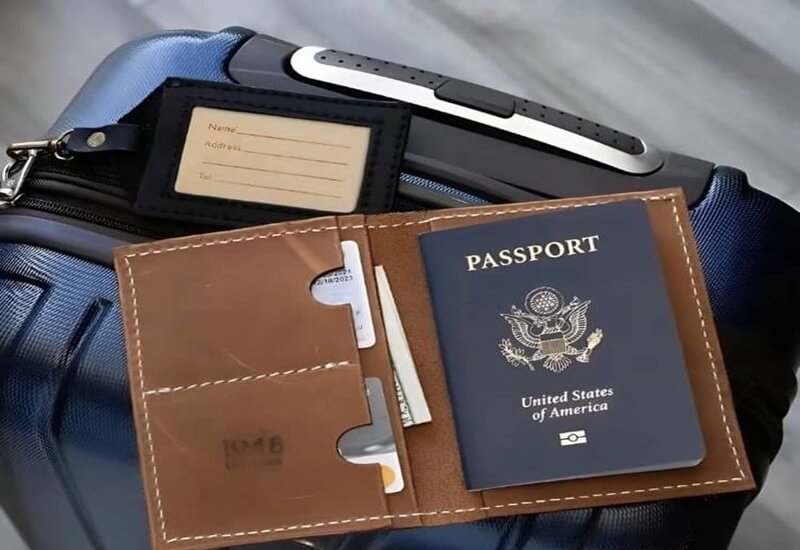New Immigration Policy For Nicaragua, Venezuela, Haiti, Cuba
Spanish Video Above Translated In English Below
Title 42 is a program introduced by former President Trump to enforce border closures and limit asylum seekers. However, certain countries have exceptions. Individuals from Cuba, Haiti, Nicaragua, and Venezuela can seek parole from their home countries.
The parole program is not considered a comprehensive solution to the border’s humanitarian crisis. It is a good thing there are various avenues available to assist family members in immigrating to the United States. They usually vary depending on one’s country of origin and the petitioner’s status.
While having an immigration lawyer is not obligatory, their guidance can facilitate a smooth process. Seeking their advice can offer clarity and address any uncertainties. The Lincoln-Goldfinch Law – Abogados de Inmigración Firm aims to provide accurate information about immigration law and counteract misinformation.

What Is Title 42?
Title 42, initially implemented under the administration of President Trump, was a program aimed at restricting asylum seekers from entering the United States. It is widely known that President Trump sought to tighten border control measures. The onset of the pandemic provided an opportunity to enforce these restrictions, resulting in the closure of borders to individuals seeking asylum.
President Biden, on the other hand, has expressed his intention to terminate the Title 42 program and resume processing asylum claims. However, recent developments indicate that the program will continue with exceptions for individuals from specific countries, including Cuba, Haiti, Nicaragua, and Venezuela.
Given this situation, it would be advisable for individuals from these four countries to consider remaining in their home countries for now. During their stay, they can explore the option of applying for a newly introduced parole program.
It’s important to note that individuals currently residing in the camps at the border will not be granted entry automatically. Everyone, including those in the camps, will need to apply for the parole program, which has a monthly quota of thirty thousand spaces. Consequently, prompt action is crucial, as the demand for entry is expected to exceed the available spaces, resulting in a potential waiting list.
30,000 Visas Per Month Available
The exact number of people who will apply for the parole program and the duration of the waiting period are uncertain at this time. However, there have been reports of individuals successfully gaining approval for entry. This indicates that many people from the designated countries will have the opportunity to apply for additional benefits once they have entered the United States.
For instance, individuals from Cuba may be able to adjust their immigration status, while those from Venezuela can pursue the option of seeking asylum in the United States. Although the entry granted through the parole program is temporary, it presents a viable path for individuals to address their status concerns upon entry.
Therefore, it is highly recommended to apply for this parole program as it offers a relatively straightforward means of gaining entry to the United States.
Requirements To Apply For The Benefit
When applying for a K-1 Visa, it is crucial to have a clean criminal record. Applicants must obtain a police clearance certificate from each of their home countries. It aims to ensure the safety and security of the United States by verifying that the applicant has no history of criminal activities.
The K-1 Bisa application necessitates sponsorship from a U.S. citizen or lawful permanent resident, referred to as the petitioner. The petitioner must provide evidence of their financial ability to support the immigrant fiancé during their stay in the U.S. They must submit income documents, such as pay stubs or tax payments. The income level must typically exceed 125 percent of the poverty guidelines. The specific income threshold varies based on the household size. It could be approximately $20,000 per year.
After gathering all the required documents, the K-1 Visa application is sent via mail for review by the U.S. Citizenship and Immigration Services (USCIS). If the application is approved, it is then forwarded to the National Visa Center (NVC). NVC arranges an appointment at the U.S. consulate or embassy in the applicant’s home country.
During the Consular Process appointment, the applicant undergoes an interview to assess their eligibility for the K-1 Visa. The consular officer carefully examines the application, poses questions about the relationship, and verifies the completeness of the submitted documents.
If the officer is satisfied with the application and interview, the applicant receives the K-1 Visa. It is a sign allowing the foreign fiancé to travel to the United States and marry their U.S. citizen sponsor within 90 days of entry.
Parole For People Already In Mexico
Individuals currently in Mexico seeking entry into the United States can apply for parole. However, these individuals, who may be refugees, face significant risks, including the threat of kidnapping, while staying in Mexico. To prioritize their safety, they must secure accommodations in a safe location, such as an apartment.
The parole application process typically takes one week but can extend to several months. During this time, individuals undergo a comprehensive evaluation to determine their eligibility for parole and to assess any potential risks or concerns they may face. Parole grants temporary permission to enter the United States for specific reasons, including humanitarian or urgent circumstances.
Considering the risks involved, individuals in Mexico should seek legal assistance from reputable firms like Lincoln-Goldfinch Law – Abogados de Inmigración. Their skills and guidance can prove invaluable throughout the parole application process. They ensure that individuals are well-informed about their rights and increase their chances of obtaining parole to find safety in the United States.
While individuals in Mexico consider parole a pathway to enter the United States, those confronting persecution or imminent danger can also seek asylum. This alternative allows individuals to transition from the parole process and present their case for protection. It provides them with the chance to substantiate their claims of fear and obtain legal status in the United States as a place of sanctuary.
Asylum For People In Mexico
Individuals in Mexico, including Mexican nationals, can apply for asylum protection in the United States if they face risks or have experienced persecution. However, there is a challenge due to the current policy that limits credible fear interviews, which are crucial for individuals to initiate the asylum application process. Consequently, they may be denied entry if they arrive at the border seeking protection.
Although Mexican law allows for asylum applications, the issue lies in the absence of a formal process at the border to seek protection. Asylum seekers usually need to enter the United States with a valid Visa or explore alternative avenues to pursue asylum claims. It poses a significant barrier for individuals in Mexico seeking asylum, as they lack a direct means to access the asylum process at the border.
As people in Mexico face the complexities of pursuing asylum in the United States, engaging an immigration lawyer becomes crucial. Seeking legal assistance can equip individuals with the essential knowledge and guidance to navigate their cases. It helps them comprehend their rights and enhances their chances of achieving a favorable outcome in their asylum application.
Importance Of Having An Immigration Lawyer
While having a lawyer is not a mandatory requirement, it is highly advisable to seek legal counsel to review and strategize the case to avoid any potential issues. Even a minor error, such as an incorrectly filled-out form or insufficient supporting evidence, can result in significant delays lasting several months. This is a common occurrence within the administrative process.

Therefore, it is crucial to initiate the case and ensure the correct procedures are followed right from the beginning to avoid unnecessary time wastage. Prompt action is important for these individuals as they face risks and cannot afford to remain in their current circumstances.
The experienced lawyers at Lincoln-Goldfinch Law – Abogados de Inmigración are well-equipped to address any uncertainties or misinformation surrounding immigration matters. It is common for individuals to receive inaccurate information. It leads to misconceptions or feelings of frustration or envy towards those who may have different options, such as Nicaraguans or Venezuelans.
Recognizing the importance of legal guidance from immigration lawyers also makes it essential to consider alternative approaches for asylum seekers encountering difficulties at the border. It prompts an exploration of potential avenues and initiatives offering assistance and support as they strive to find safety and protection in their journey.
Alternative Solution For Asylum Seekers
As an alternative solution for individuals seeking asylum, Lincoln-Goldfinch Law – Abogados de Inmigración has developed an effective process before implementing Title 42. It allowed individuals to present themselves at the border and request a credible fear interview. They will undergo it while waiting for their case in front of the immigration court with a work permit.
If the individual successfully demonstrates a credible fear of persecution or danger in their home country during the interview, they may receive parole. It allows them to enter the United States and await their immigration court hearing while also being eligible to obtain a Work Permit. In addition, it provided a pathway for individuals to seek protection, pursue their asylum claims, and live and work in the United States.
Conclusion
The immigration landscape, particularly regarding asylum seekers and individuals in Mexico, is complex and subject to various policies and regulations. Title 42 is a program implemented by Former President Trump that limited asylum seekers’ entry into the United States. While President Biden expressed his intention to end the program, recent developments suggest its continuation with exceptions for certain countries.
As individuals navigate these challenges, seeking legal representation from experienced immigration lawyers like those at Lincoln-Goldfinch Law – Abogados de Inmigración can provide clarity and guidance. They can help individuals understand their options, including exploring the parole program as an alternative solution for entry into the United States.
If you have additional questions about the Title 42, immigration policies, or your specific case, you may contact us at (855) 502-0555. After a brief 10-minute evaluation of your case over the phone, we will let you know what options you have. You can also follow us on our social networks so you don’t miss our weekly broadcasts on Facebook, YouTube and Twitch.
Contact A U.S. Immigration Attorney Today!
Categories
How To Find Us
What Our Clients Say
“This Lawfirm is great, very professional and helpful. I love that they are always in communication and always available for when you have questions . 100% recommended by me and my family. Thank you Lincoln-Goldfinch Law – Abogados de Inmigración”





